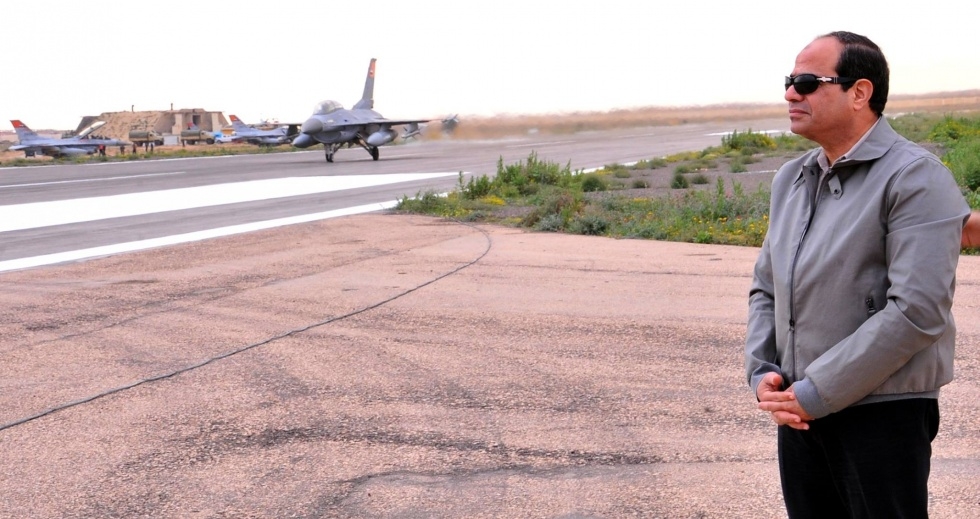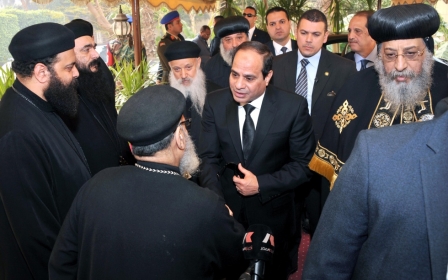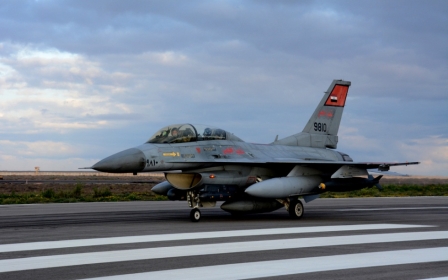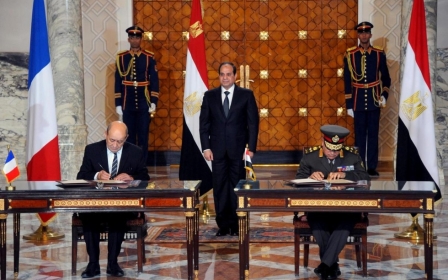Arab members of UN back lifting of Libya arms embargo: Egypt FM

Arab states will on Wednesday seek a UN resolution to end an embargo on weapon sales to Libya's internationally-recognised government, Egypt's foreign ministry said.
The New York-based UN Security Council is due to begin discussing the situation in Libya on Wednesday afternoon in the wake of the apparent mass beheading of 21 Egyptian Christians at the hands of Islamic State (IS) militants.
A spokesperson for Egypt’s foreign ministry said on Wednesday that Arab members of the UN would back an Egyptian proposal to end a UN arms embargo that has been in place since August 2014 and requires any weapons shipments to be approved in advance by the organisation’s Sanctions Committee.
The Egyptian statement did not confirm which Arab countries would be backing the bill. Egypt has since dropped their call for a military intervention after western hesitation.
“There is no call for foreign military intervention,” the foreign ministry said of the submitted UN draft on Libya.
Badr Abdel-Ati, the ministry spokesman, said that the draft will aim to provide Libya the required support the country needs in its fight against terrorism.
“There is an Arab draft resolution for enabling the legitimate Libyan government to fight terrorism, restore stability, uproot terrorist organisations and enforce security,” he said in a statement. “The draft resolution focuses on providing support for the legitimate Libyan government for fighting terrorism and enforcing law and order as well as tightening the ban on arms sales to extremist and radical groups."
Speaking to Sky News Arabia after the announcement of Arab support for a resumption of arms shipments, Egyptian Foreign Minister Sameh Shokri said that the bill aims to “support the Libyan government,” referring to the House of Representatives (HoR), one of two rival governments that are fighting for legitimacy and control of Libya’s oil wealth.
Shukri, however, did admit that some members of the Security Council had “reservations” about the Arab proposal.
Tunisia, which neighbours Libya to the west, said on Wednesday that it backs a political solution and rejects any foreign intervention in Libya.
Algeria, another of Libya's neighbours to the west, has also been a staunch opponent of military escalation, stressing on Tuesday that "this serious development in Libya urges us to exert maximum efforts to encourage Libyans to engage in dialogue".
Despite the embargo, all sides in the protracted fighting, have been accused of enjoying support from foreign powers.
An HoR-backed military campaign led by former renegade general Khalifa Haftar who was integrated back into the military late last years is rumoured to be receiving weapons and aerial support from Egypt and the UAE.
Meanwhile, countries like Qatar and Sudan have long been accused of backing militia groups that played a key role in the 2011 uprising that toppled strongman president Muammar Gaddafi and are now seen as loyal to the Tripoli-based parliament.
As members of the Security Council prepared to discuss calls for a stronger stance on Libya, Egypt’s President Abdel Fattah al-Sisi warned his army to be prepared to undertake “any mission” amid heightened tension in the region.
Sisi visited the Eastern Military Zone, on the border with Libya, on Wednesday and urged troops to be ready to protect Egypt’s sovereignty, warning vigilance against attempts to “violate the country’s borders”.
New MEE newsletter: Jerusalem Dispatch
Sign up to get the latest insights and analysis on Israel-Palestine, alongside Turkey Unpacked and other MEE newsletters
Middle East Eye delivers independent and unrivalled coverage and analysis of the Middle East, North Africa and beyond. To learn more about republishing this content and the associated fees, please fill out this form. More about MEE can be found here.




